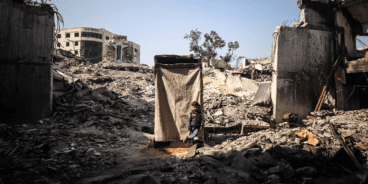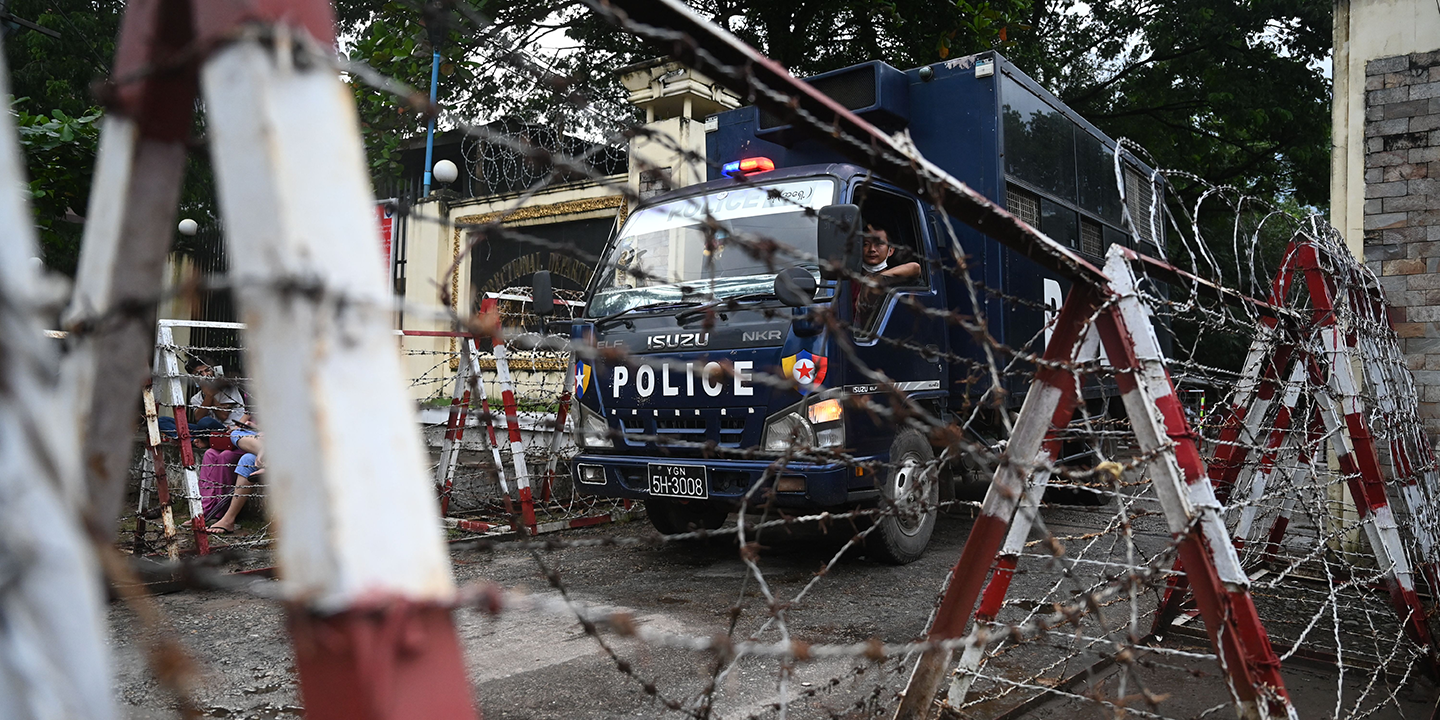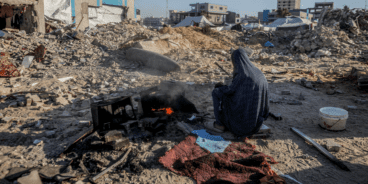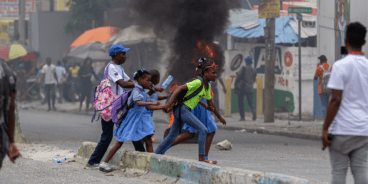

Atrocity Alert No. 275: Myanmar (Burma), Libya and Cameroon
Atrocity Alert is a weekly publication by the Global Centre for the Responsibility to Protect highlighting situations where populations are at risk of, or are enduring, mass atrocity crimes.
UN WARNS OF MILITARY-LED “CLEARANCE OPERATIONS” IN MYANMAR
On 8 October the Office of the UN High Commissioner for Human Rights raised alarm about the likelihood of an escalation of violence against civilians in upper Myanmar (Burma). Recent reports indicate that more than 3,000 troops from Myanmar’s military – the Tatmadaw – and substantial heavy weapons have been deployed to Chin State and Magway and Sagaing regions. Civilian opposition to military rule – largely in the form of grassroots militias called People’s Defence Forces (PDFs) – has been especially active in this part of the country. There are mounting warning signs that the military is preparing to perpetrate large-scale “clearance operations” in the region.
The Tatmadaw has historically used the term “clearance operations” to describe violent campaigns against civilians. So-called clearance operations perpetrated in Rakhine State during 2017 were characterized by attacks against the Rohingya population, including indiscriminate killings, sexual violence and the forced displacement of more than 745,000 people. In 2019 the UN Human Rights Council-mandated Fact-Finding Mission on Myanmar concluded that senior members of the military should be prosecuted for crimes against humanity, war crimes and genocide against the Rohingya.
The threat of imminent large-scale attacks and fighting between the military and PDFs has intensified since the National Unity Government declared a nationwide uprising against the junta on 7 September. According to recent reporting, the military continues to perpetrate killings, abductions, raids, arson and other violent crimes against civilians around the country. Large convoys have been seen traveling throughout Chin State in particular, with witnesses reporting seeing over 80 military trucks traveling from Magway region.
The Association of Southeast Asian Nations (ASEAN) decided on 15 October to exclude Myanmar military representatives from its upcoming summit set for 26-28 October, and instead extended the invitation to a “non-political representative.” This move underscores the gravity of the situation in Myanmar, as the decision breaks from ASEAN’s policies of non-interference. Following ASEAN’s decision, the military announced on 18 October that it would release 5,600 of the more than 7,000 people who were detained for taking part in anti-coup protests. Many of those who were released were re-arrested.
On 18 October the UN Special Rapporteur on the situation of human rights in Myanmar, Tom Andrews, once again called on the international community to act, reiterating that, “sustained pressure on all three fronts – money, weapons and legitimacy – is the best way the international community can support the people of Myanmar to protect their human rights and save their country.” The international community should respond to the alarming reports of the impending clearance operations by intensifying pressure on the junta to prevent further atrocities against populations in Myanmar.
UN EXPERTS FIND EVIDENCE OF WAR CRIMES AND CRIMES AGAINST HUMANITY IN LIBYA
On 4 October the UN Fact-Finding Mission (FFM) on Libya presented its first report to the Human Rights Council, alleging that war crimes and crimes against humanity have likely been committed in Libya since 2016. The report details that all parties to the conflict, including third state parties, foreign fighters and mercenaries, have committed violations of International Humanitarian Law. The violations include murder, torture, extrajudicial killings and rape.
Libya has been marred by recurrent conflict and atrocities since the 2011 overthrow of then President Muammar Qaddafi. Despite a UN Security Council-mandated arms embargo, multiple states, including permanent members of the Council, provided arms to several parties to the conflict, which prolonged the fighting. Civilians have been caught in the crossfire of armed confrontations throughout the country since 2016, and in particular when fighting escalated during 2020 in Tripoli. The intensification of hostilities displaced over 270,000 people and left 900,000 in need of humanitarian assistance. Hundreds of bodies have been exhumed from mass graves around the city of Tarhuna, southeast of Tripoli. Attacks on healthcare and other civilian centers have also been prevalent. After years of setbacks, a unified government was established in March and presidential elections are scheduled for December.
The FFM’s findings were presented amidst an unprecedented crackdown by Libyan authorities and ongoing abuses against migrants, asylum-seekers and refugees, who are languishing in Libya’s infamous detention centers. On 1 October more than 5,000 migrants, asylum-seekers and refugees, including children and women, were arrested during a series of raids. The UN received reports of unarmed migrants being harassed in their homes, beaten and shot. On 9 October guards at Al Mabani detention center opened fire on migrants attempting to escape inhumane and crowded conditions, killing six people. Al Mabani is currently hosting 4,000 detainees – four times its occupancy limit.
According to the FFM’s investigation, non-state actors – with the encouragement of government officials – committed widespread violations against migrants that may amount to crimes against humanity. The FFM detailed myriad abuses suffered by migrants, asylum-seekers and refugees, including rape and sexual violence, murder, torture and enslavement. Such abuses have taken place in detention, with traffickers or while attempting to cross the Mediterranean Sea to Europe.
Sarah Hunter, Communications and Digital Media Officer at the Global Centre for the Responsibility to Protect, said that, “in order to build on recent political progress, Libya’s leaders must end ongoing abuses against migrants, reconcile past atrocities and provide credible justice for victims and survivors. Libya’s justice system needs sustained international support for these efforts to succeed.”
ANGLOPHONE CRISIS IN CAMEROON CONTINUES TO DETERIORATE FIVE YEARS ON
On Thursday, 14 October, a five-year-old girl was killed on her way to school at a checkpoint in Buea, the capital of the Anglophone south-west region of Cameroon, when a gendarme allegedly fired warning shots at the vehicle she was traveling in. Hundreds of people took to the streets in protest and carried the body of the girl to the governor’s office. This incident is part of a pattern of increased militarization and intimidation against the Anglophone minority in the north-west and south-west regions by the Francophone-dominated government.
The conflict over cultural rights and marginalization in Cameroon’s Anglophone regions began five years ago in October 2016. Since then, over 4,000 civilians have been killed and more than 780,000 have been displaced. Clashes between government forces and armed separatist groups have resulted in atrocities, including extrajudicial killings, kidnappings and torture. There has also been widespread destruction of villages, schools and hospitals throughout the north-west and south-west regions. Both sides of the conflict have been accused of grave violations and abuses of human rights. Since the beginning of this year, the government has intensified its attacks against armed separatist strongholds in an attempt to end the conflict. Armed separatists have retaliated by using more deadly weapons, including improvised explosive devices and anti-tank rocket launchers.
Amidst the conflict, populations are often denied access to basic services, while aid workers are routinely attacked or kidnapped. The UN Office for the Coordination of Humanitarian Affairs estimates that 1.1 million people are severely food insecure in the north-west and south-west regions.
Juliette Paauwe, Senior Research Analyst at the Global Centre for the Responsibility to Protect, said that, “while only certain incidents make the international news, populations in the Anglophone regions live in constant fear of atrocities. Without effective action, the conflict will only escalate further. The African Union’s Peace and Security Council and the UN Security Council should urgently help facilitate a ceasefire and inclusive dialogue between the government and separatist groups, mediated by a neutral player on neutral territory.”
Related Content


Atrocity Alert No. 438: Israel and the Occupied Palestinian Territory, Mali and Myanmar (Burma)
